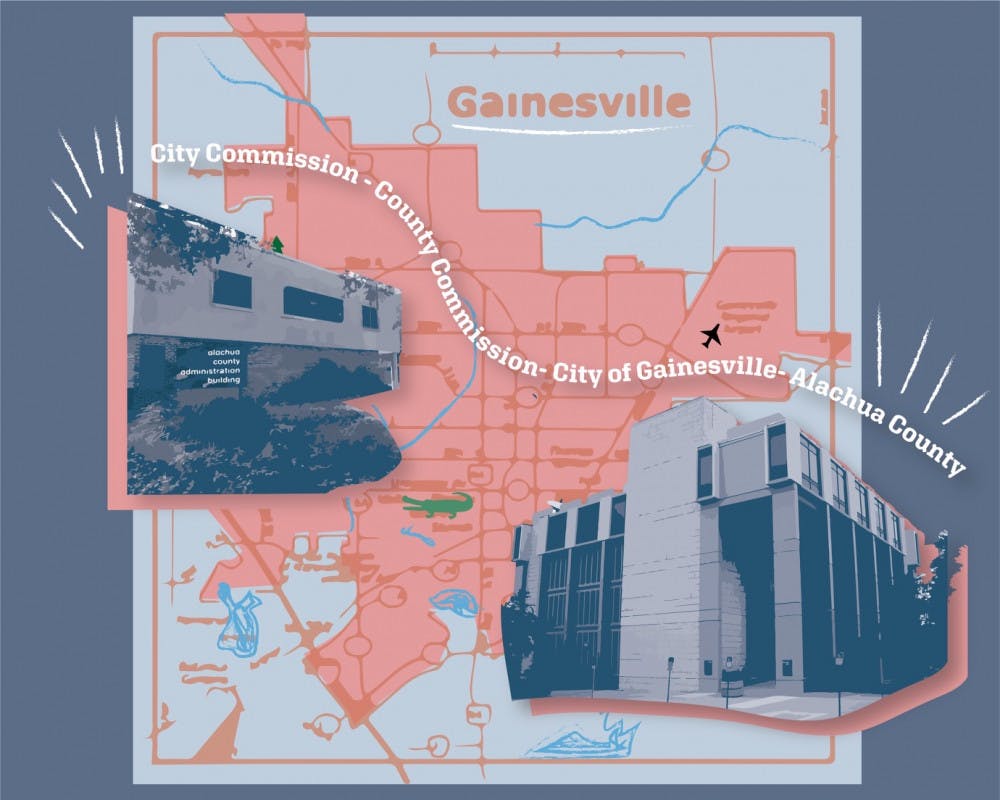The Alachua County Legislative Delegation voted 4-1 March 17 to move a bill affecting Gainesville Regional Utilities to the floor of the Florida House of Representatives.
The bill, filed by Rep. Chuck Clemons, R-Newberry, would move power over regional utilities out of the Gainesville City Commission’s hands by creating a state-appointed GRU Authority board. The board would consist of volunteers from the area served by GRU, appointed by Gov. Ron DeSantis.
The bill now moves to committee approval, a process that has been side-stepped before. The next step would be moving the bill to a House vote in the next two to three weeks.
Members of the Alachua County Legislative Delegation — Sen. Jennifer Bradley, Sen. Keith Perry, Rep. Chuck Brannan and Clemons — all voted to approve the bill.
ge 40% of people using GRU live outside of the city limits, Clemons said during the meeting. If the City Commission is in control of the utility, that means 40% of its customers have no ability to elect them, he said.
“They can’t vote the people out of office,” Clemons said. “They have no ticket to get into the city for their election.”
The bill targets GRU specifically, one out of 33 regional electric utilities in the state, a list that includes major cities like Jacksonville, Orlando and Tallahassee. GRU is the fifth largest in Florida, serving 93,000 customers. This means more than 37,000 people served by the city-owned utility can’t vote for Gainesville commissioners.
GRU rates were the second highest in the state in 2022. Key West was the highest at $162 per bill, ahead of Gainesville’s $154 a bill. These high rates can disproportionately affect minorities renting in low-income housing due to inefficient amenities that increase rates.
GRU currently has a 14% equity rate, which measures how well a company manages its debts. A good utility service has a 60% equity rate, Clemons said. The commission hasn’t been handling utilities correctly, and it needs to see changes that permanently address the problem, he said.
“This is a spiraling thing,” Clemons said. “That’s what this bill attempts to do, is to help so that it doesn’t crash.”
However, the only Democrat part of the delegation, Rep. Yvonne Hinson, D-Gainesville, voted against the idea. During her time as a Gainesville city commissioner from 2012 to 2015, the commission considered the same idea, she said. The only difference was that the City Commission would be the one appointing volunteers. But they voted against it.
Similarly, Clemons brought a 2018 referendum to Gainesville for a bill that would put an independent GRU board in place appointed by the City Commission, rather than the governor. The vote failed, with 40% of voters in favor.
This continuous effort from Clemons and his supporters to take the power of GRU oversight away from the City Commission is not fair to residents, Hinson said. Because both the commission and the residents have spoken on the issue, Clemons is overstepping, she said.
“Let me just assure you, that is not what we want,” she said. “We should have done that ourselves.”
Mayor Harvey Ward also testified at the meeting. The importance of the City Commission’s oversight of GRU stems from the idea that commissioners are readily accessible to the public and can hear community members’ concerns, he said.
“I don’t go to Publix or Lowe’s or church or pick my kids up from school without somebody talking to me about the job,” Ward said. “Because that’s what the job is… We’re in the middle of the community all the time.”
Elected officials must respond to their constituents, he said. An independent board defeats this purpose.
The bill cannot be put on the House calendar until April 10, Ward said, but he expects the process to move quickly after that.
Commissioner Bryan Eastman also attended the March 17 meeting. He was saddened to witness them move the bill forward, he said. The delegation didn’t do enough to speak with people living in and around the Gainesville area to gather how people actually felt about the bill, he said.
“The decisions on this are going to reverberate for decades within our community,” he said. “Generally, things like this are done through careful study.”
A positive Eastman sees is that Clemons and the rest of the delegation are planning on discussing aspects of the bill directly with commissioners — a process that hadn’t happened until city officials showed up to testify March 17.
Eastman sees the current bill as unworkable, and he’s hoping they can convince Clemons to make some changes, he said. Having GRU Authority officials appointed by the City Commission instead of the governor would be an example of a compromise. However, the end goal is still no bill at all, he said.
“There’s a possibility that a better bill could come forward that would be more palatable,” he said. “And then we’ll continue to push.”
Contact Siena sduncan@alligator.org. Follow her on Twitter @SienaDuncan.

Siena Duncan is the Fall 2024 Editor-in-Chief of the Alligator. She's interned for the Salt Lake Tribune, the Tampa Bay Times and POLITICO. In her spare time, she loves to take walks to see the cows by her apartment and add more to her sketchbook.






